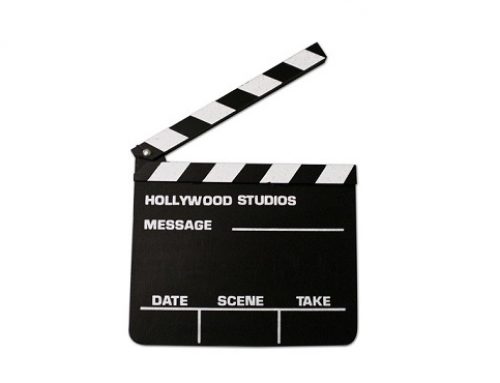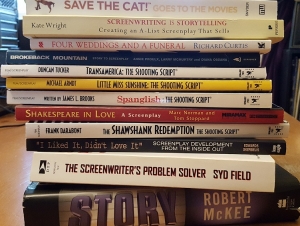 I’m always fascinated by people—what makes them tick, what freaks them out, why they act the way they do. When I set out to write a story, whether it’s live action or animation, I often think, what kind of character would be the worst possible choice to be dropped into (x, y or z) situation? I especially love to write characters with contradictions. I’ve never met anyone who checked all the boxes for one personality type.
I’m always fascinated by people—what makes them tick, what freaks them out, why they act the way they do. When I set out to write a story, whether it’s live action or animation, I often think, what kind of character would be the worst possible choice to be dropped into (x, y or z) situation? I especially love to write characters with contradictions. I’ve never met anyone who checked all the boxes for one personality type.
Stories are like fun recipes where you can mix characters and test them and force them to interact with other characters they don’t like—a dash of anxiety here, a drop of terror there. . .
Before Covid, of course, I liked watching people in airports, in waiting rooms, especially places where they’re kind of thrown together and wouldn’t normally hang out with each other. That’s when things can get interesting.
Plot Versus Character
For me, a good story starts and ends with character. There are writers who don’t agree—they say it’s about plot, or the “hook,” the high concept, etc. While these things are definitely critical to your success, if you overlook character, your story will feel hollow. For example, movies with high-octane plots are like watching a chess match where the moves may be interesting in the moment, but the game is quickly forgotten. In other words, one-dimensional, uninteresting characters usually equal forgettable scripts. There are some exceptions like The Matrix. That concept was SO mind-blowing, I didn’t care that Neo was kind of an “every guy.” In fact, it’s a story I wish I’d written. On the other hand, who could forget Agent Smith, his speech patterns, his hatred for the human race? HE was certainly memorable, as was Cypher, another dynamic character who wanted to live blissfully ignorant and whose actions also helped to raise the stakes.
How to Get Us Invested in Your Story
So when you set out to write your next great script, consider this—vivid characters make us care. We’ll care what happens to them. And when you raise the stakes, we’ll care even more. Great characters keep audiences riveted, and make them think, and talk, about them long after the credits roll.
A lot of screenwriting gurus like to tell you what’s wrong or right. I believe every writer has their own process. Believe it or not, I usually think of an idea for a story before I populate that story with characters. But it’s been my experience that characters are the important ingredient that makes audiences get invested in the story.
How to Craft Memorable Characters
If this is an area you struggle with, make a list of your top 20 favorite characters. Then to the side of each one, write what makes them a favorite. Example: Walter White from Breaking Bad. He goes from mild-mannered high school chemistry teacher to a power-hungry, notorious criminal.
Another example: Samantha Kane from The Long Kiss Goodnight. She begins as a housewife with amnesia who learns she used to be a top assassin.
Try to find common threads in your answers. A dramatic character arc? Two polar opposite sides to the same person?
Here’s one other exercise you might try. Think about what frustrates you about someone. An inability to see that they’re wasting their life chasing a dream (or person) that won’t be fulfilling if they achieve it? A basically kind person who trips over their own selfishness at the worst possible times?
What makes you admire someone? Cool confidence? An ability to remain unflappable in stressful situations? An ability to see only the good in people?
I like to take out a notebook, jot down lists of characters and what impact they have on me. From that, it helps me see what types of characters can elicit the strongest responses. Hopefully, these exercises may work for you, too.
The bottom line: never underestimate the power of a memorable character. Something to think about when you set out to write, or do rewrites on, your next script.
Good luck and happy writing!
Renée Lukas is a Nicholl Quarterfinalist screenwriter, published author and a script reader for the Bluecat Screenplay Competition. She has developed projects for both film and television.



